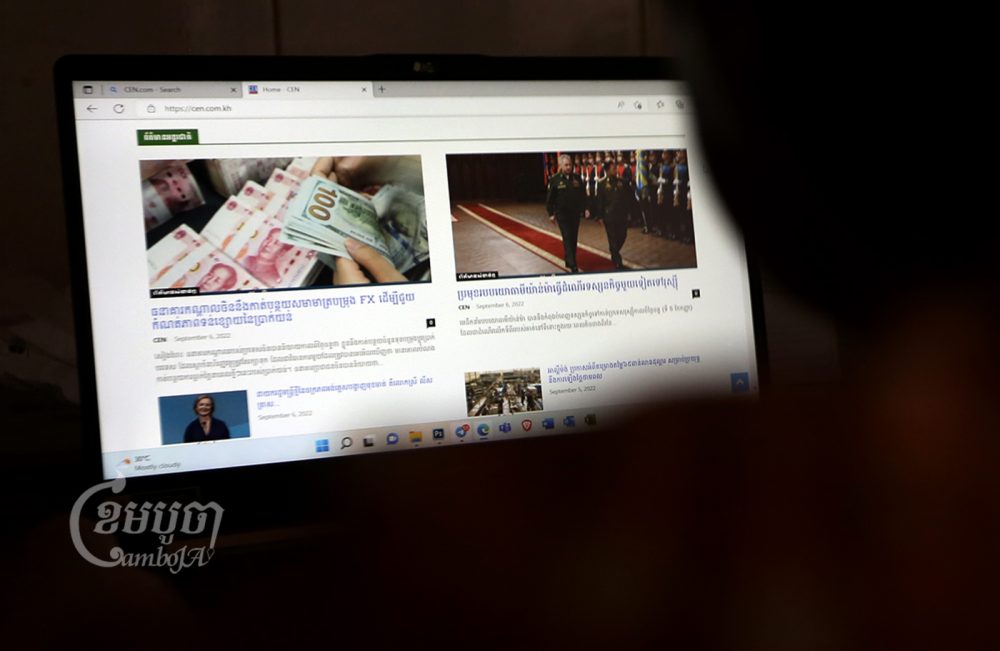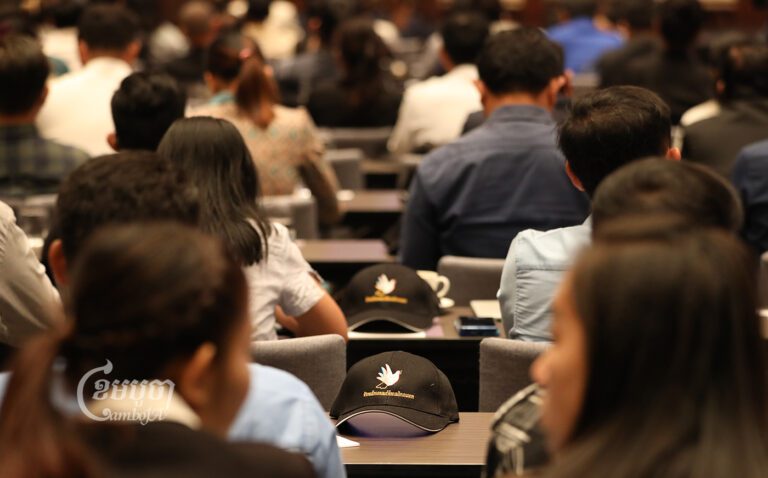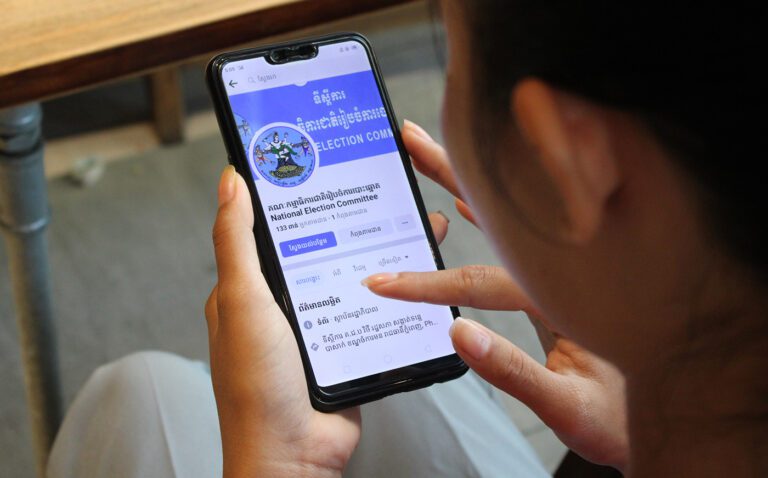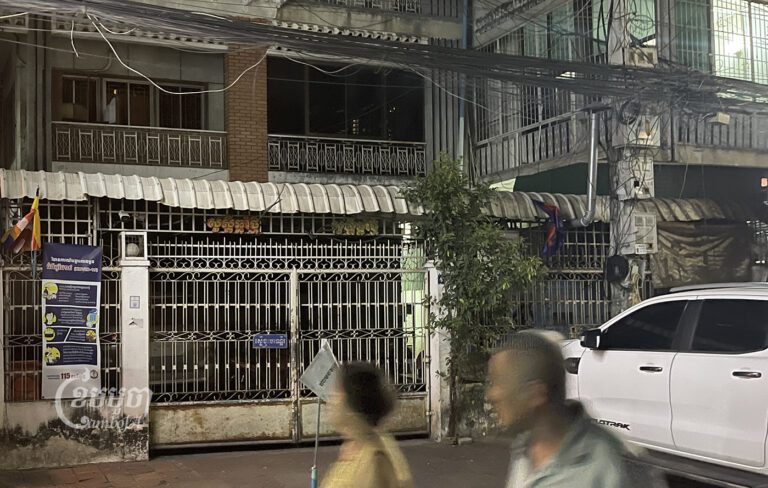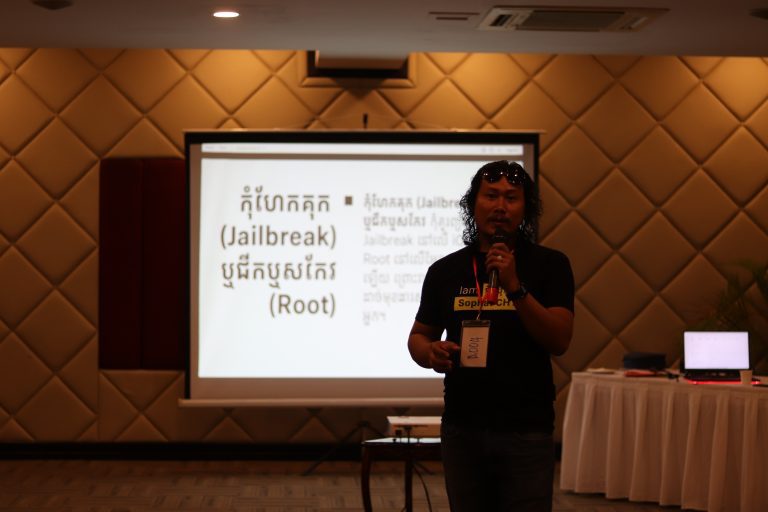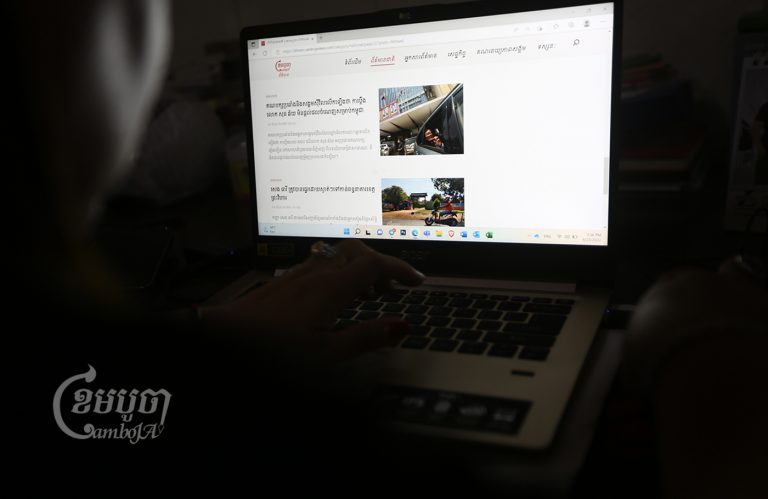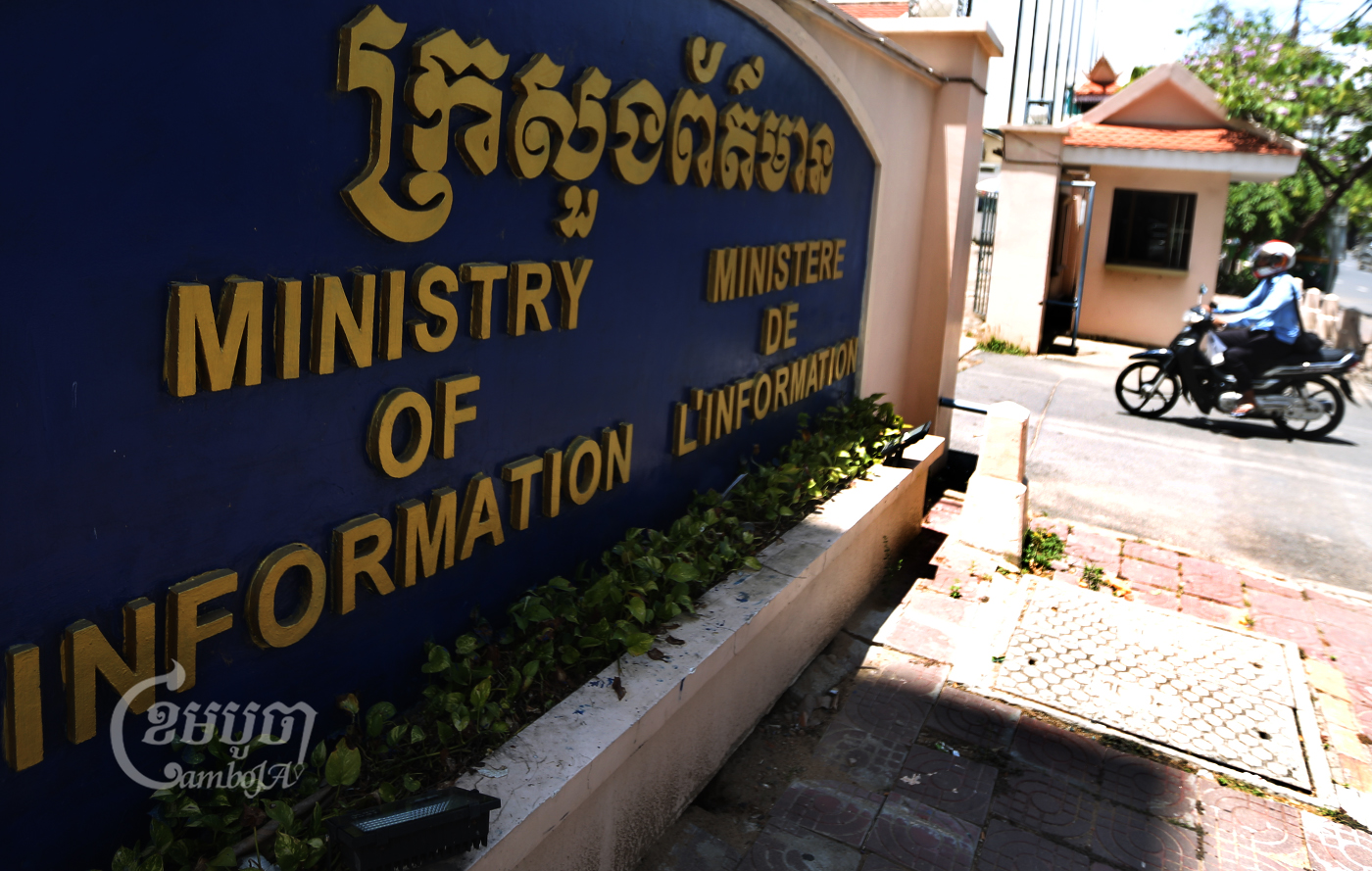Soeur Pisey, 19, is in her third year of studying to be a primary school teacher at Phnom Penh Teacher Education College, and will soon return to her hometown in Preah Sihanouk to teach, yet she has never studied media literacy.
She’s not alone, media literacy isn’t taught in Cambodia. But now the Ministry of Education, Youth and Sports has collaborated with the German organization DW Akademie to develop a Media and Information Literacy textbook which will be soon integrated into the teacher college’s curriculum.
Only 30% of Cambodians have a basic understanding of digital literacy and know how to utilize digital platforms and the internet to seek and exchange information, said Chea Vandeth, Minister of Posts and Telecommunication, which makes them vulnerable to scams and misinformation.
There are now 12 million social media users in the country, accounting for some 73% of the total population, according to online reference library DataReportal.
Pisey said she’s looking forward to studying the new topic.
‘’Like most of us, I have never studied a course related to media literacy and I’ve barely even heard people discuss this topic, especially in the rural areas,” she said.
“With this shortage of knowledge it is hard for us to use digital platforms safely,” Pisey added. ‘’I used to share fake news when I first started using social media. It looked real and that is a problem.”
Set Seng, director of Phnom Penh Teacher Education College, said it was important to introduce the topic into the curriculum.
“Our trainee teachers do not have even basic skills in media literacy. They do not know how to verify, use, or share content critically,” he said. “So, it is important to have a course which equips them with such skills.”
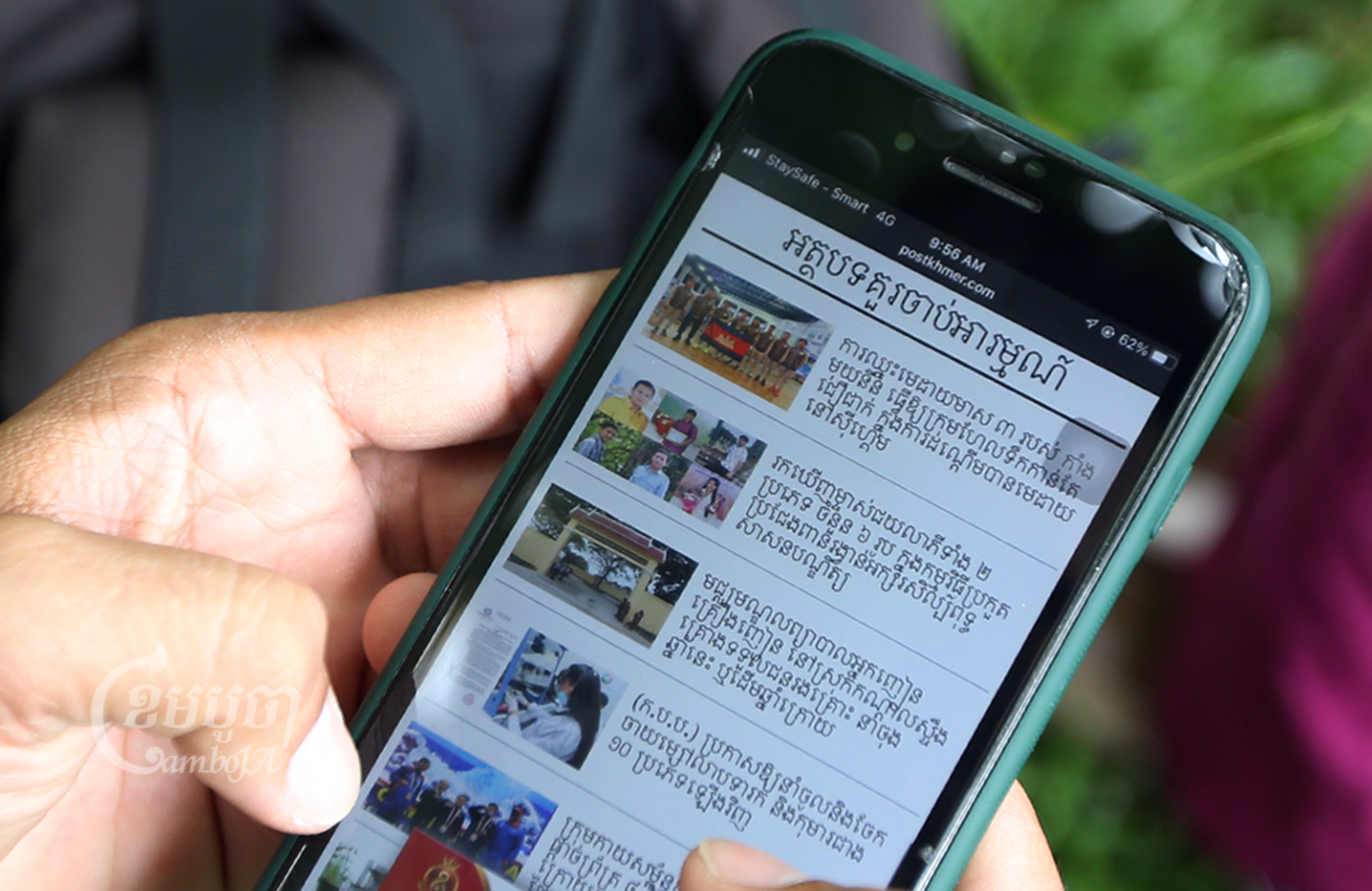
Kyle James, a consultant in training methodology at DW Akademie, said the new textbook explains what media literacy is and teaches people how to analyze content on social media.
“While these media channels can be very entertaining and educational, young people must know how to use them wisely and responsibly, and not spread disinformation or fall victim to scams or online bullying,” he said.
‘’Media and information literacy education in the schools give young people in Cambodia the tools they need to successfully navigate the digital world,” he added.
The new textbook examines topics such as journalism ethics, as well as how to find good, accurate information online while avoiding misinformation and disinformation. It also covers online privacy and security.
Om Chandara, deputy director of the information technology department at the Ministry of Education, told CamboJA that teaching trainee teachers about media literacy meant it would trickle down to younger students too.
“It is even more important that those trainee teachers can share media and information literacy knowledge with their students when they go teach,” he said.


